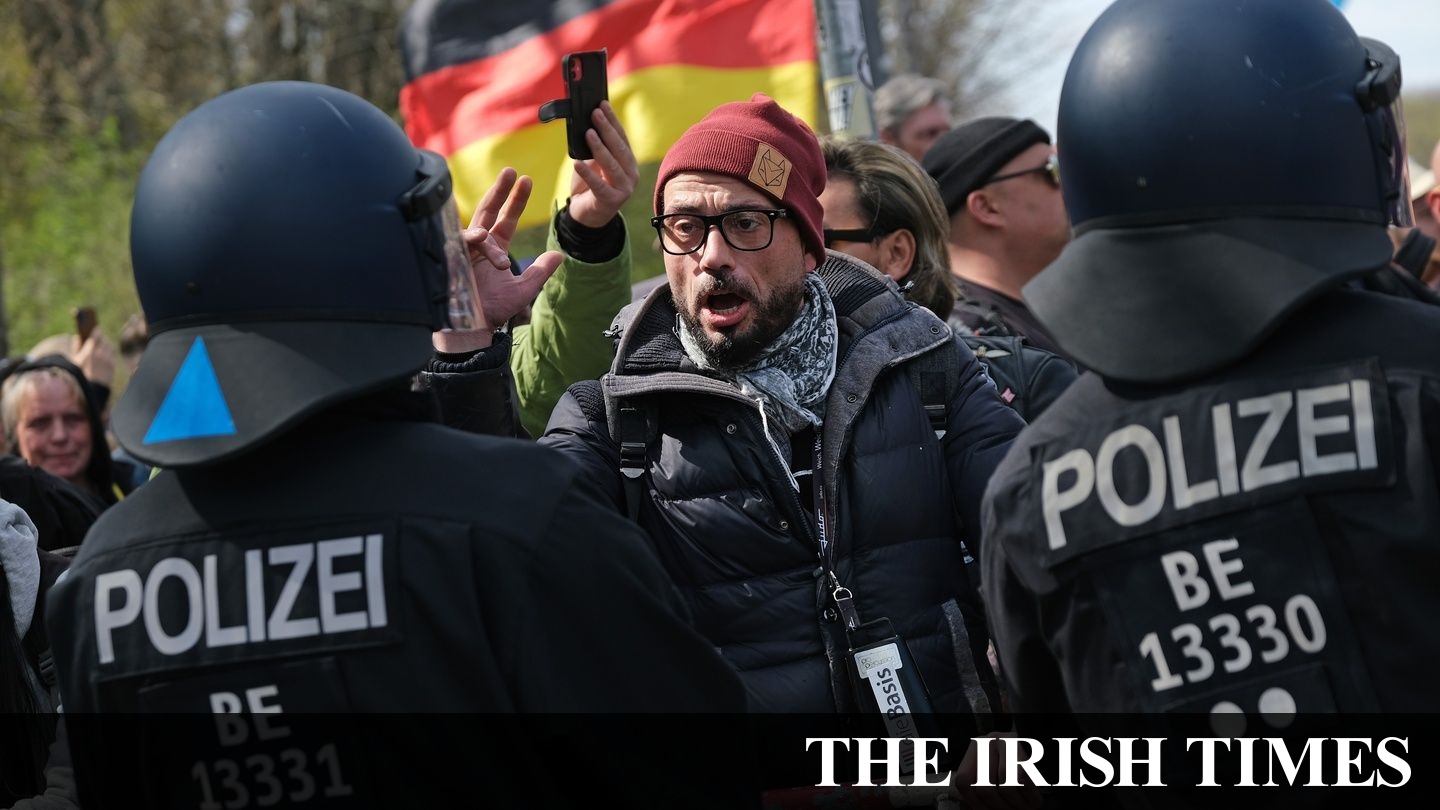German states face pandemic dilemma as they prepare to cede power to Berlin

Leaders of Germany’s 16 federal states or Länder face a historic dilemma on Thursday in the upper house of parliament, the Bundesrat.
Are they prepared to back a new tight, blanket lockdown across the country for the first time in the year-long campaign against Covid-19 – and disempower themselves in the process?
The scene for the vote was set in central Berlin on Wednesday. Outside the Reichstag building, seat of the Bundestag lower house, bottles and tear gas flew as more than 8,000 protesters clashed with police over the proposed measures.
Protesters drawn from far-left and far-right groups, civil rights groups as well as anti-vaccination campaigners and conspiracy theorists gathered at the Brandenburg Gate chanting “Peace, freedom, no dictatorship”!
Others walked around the adjacent Tiergarten park with signs reading “End Scaremongering Now” and “Stop the Pharmademic, Great Reset, New World Order”.
In a conscious nod to the 1933 law that sealed Hitler’s dictatorship, one young protester carrying a German flag said: “This is a constitutional power grab, an empowerment law.”
The main demonstrations were broken up by police after hundreds of marchers refused to wear masks and observe social distancing rules.
Inside the chamber, after a lengthy and emotional debate, a majority of MPs backed the emergency laws – many with serious misgivings – by 342 votes with 250 opposed and 64 abstentions.
Backing on Thursday from the Bundesrat, though a one-off, would upend Germany’s postwar model which decentralised to state capitals responsibility for health, education and other key competences in the pandemic.
As a result, Germany’s Covid-19 response has seen growing divergence over how state governments regulate their schools, hospitals, retail and other pandemic frontlines.
Sliding into a third wave, with ongoing discrepancies in how agreed laws were being implemented, chancellor Angela Merkel decided to take one last risk in her political career.
In an uncharacteristic power play she pushed to secure lead competence on the pandemic rulebook – in particular so-called emergency brake provisions – if the Länder cede power.
Merkel wants a final make-or-break lockdown, one worth the name, to slow down new infections and buy time for German hospitals as the vaccine rollout gathers pace.
The new pandemic proposals, running to the end of June, are the toughest Germany has seen to date: total closure of all but essential retail and overnight curfews in regions with incidence rates of more than 100 new infections per 100,000 people over the previous seven days.
Schools set to close
Current infection levels mean all but one of the Länder would be affected by the lockdown from Monday. In addition, schools will close in regions with incidence rates above 165.
In Wednesday’s Bundestag debate, federal health minister Jens Spahn defended the proposed measures as “appropriate, proportionate and adequate”. Finance minister Olaf Scholz said a centralised approach was key to ensure “clarity and consistency” in how Germany tackles the virus.
But opposition parties have attacked the measures for being disproportionate and not backed by proof of efficacy.
“Curfews are not necessary to fight the pandemic but are a curtailment of fundamental rights,” said Christian Lindner, leader of the opposition Free Democratic Party (FPD).
Even before the final Bundesrat vote, the first challenge to the emergency laws was lodged with Germany’s constitutional court. More are likely to follow in the coming days, including from the FDP and the far-right Alternative für Deutschland.
“The chancellor says there’s no negotiating with the virus, soon we’ll hear the same about the climate,” warned Alexander Gauland, AfD parliamentary co-leader. The 80-year-old, who has dismissed Covid-19 as “a light flu”, was vaccinated last Thursday, a day before Angela Merkel.
*** This article has been archived for your research. The original version from The Irish Times can be found here ***


